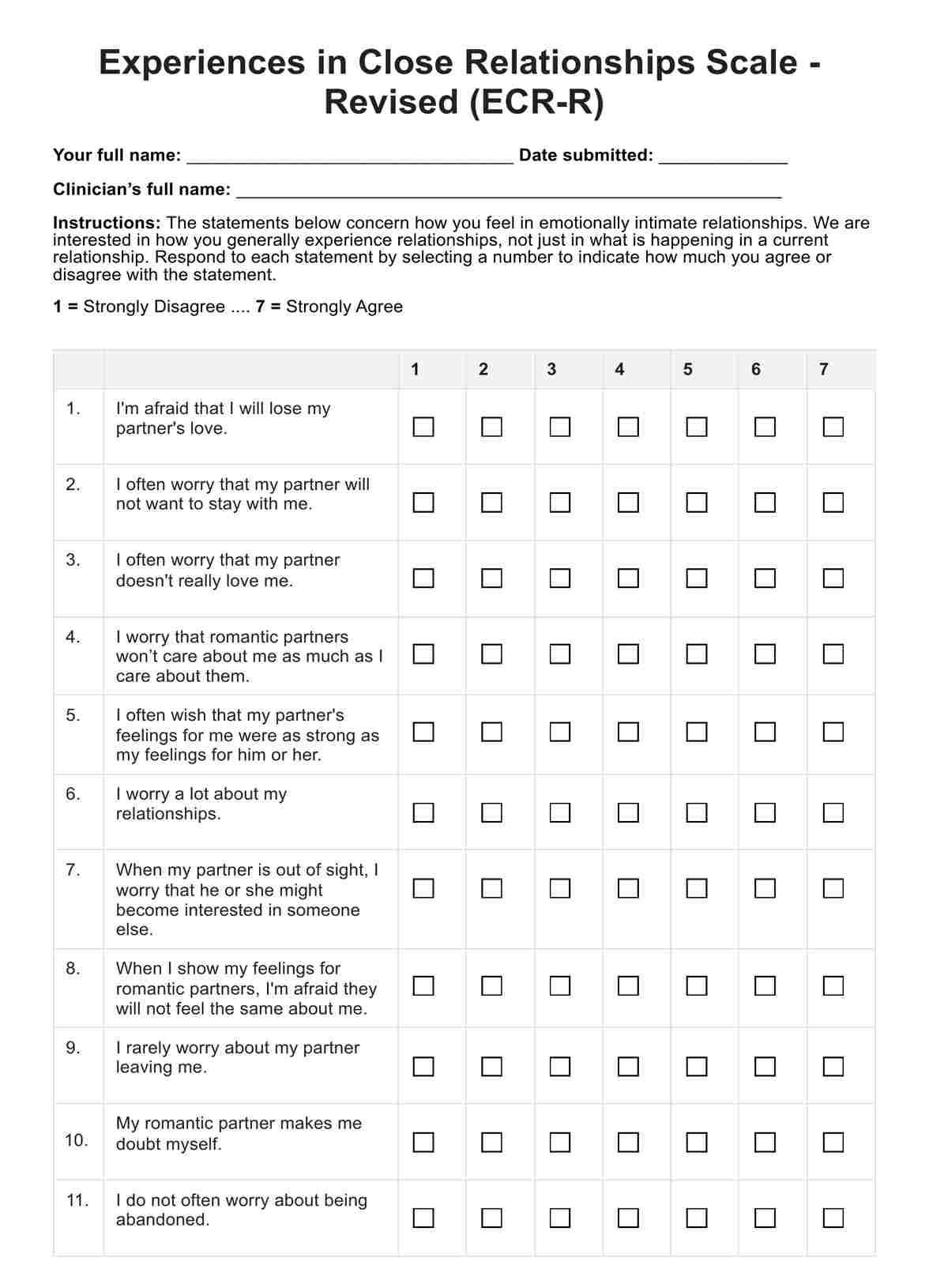Assuming the patient/client can answer each one quickly, it can be accomplished within five to ten minutes. If you opt to administer the scale like an interview, it will likely take longer than that.

Experiences in Close Relationships Scale - Revised (ECR-R)
Use the Experiences in Close Relationships Scale to gauge how a patient feels about emotionally intimate relationships.
Experiences in Close Relationships Scale - Revised (ECR-R) Template
Commonly asked questions
In terms of the instructions, no. Whatever difficulty that will arise will be on the part of the person answering it. They might have to think long and hard about their self-ratings. Some might be reluctant to answer.
Yes, but please don’t diagnose yourself based on the results. If you have relationship problems, you’re aware that it has something to do with your views on intimacy and emotional bonds, and your views have negatively impacted your mental well-being and your relationships with others, we recommend seeing a professional to help you work through these problems and hopefully reconfigure the way you think about intimacy and emotional bonds.
EHR and practice management software
Get started for free
*No credit card required
Free
$0/usd
Unlimited clients
Telehealth
1GB of storage
Client portal text
Automated billing and online payments











